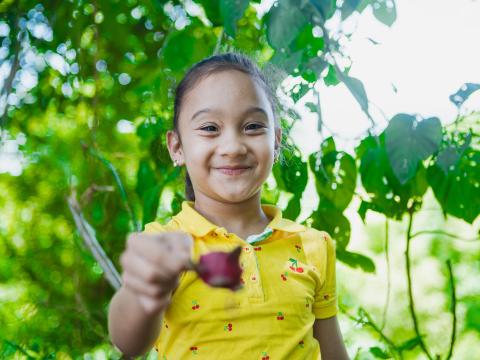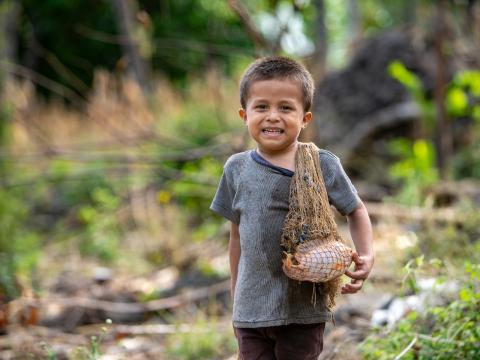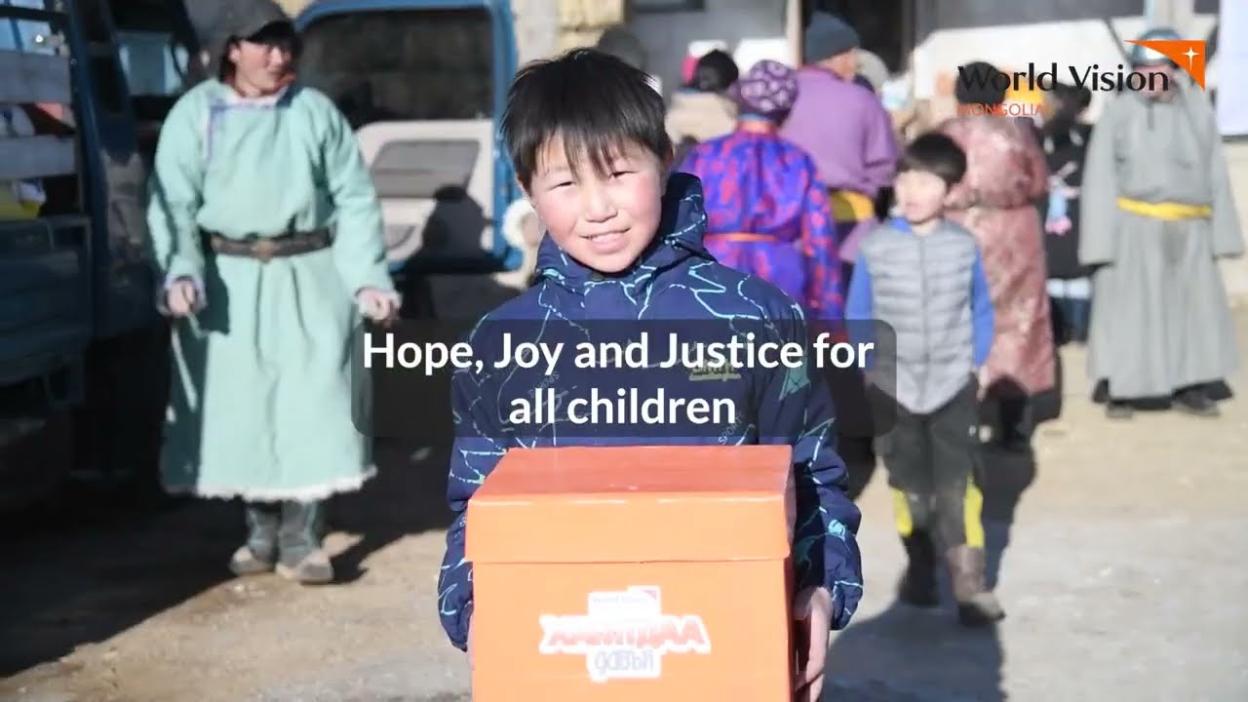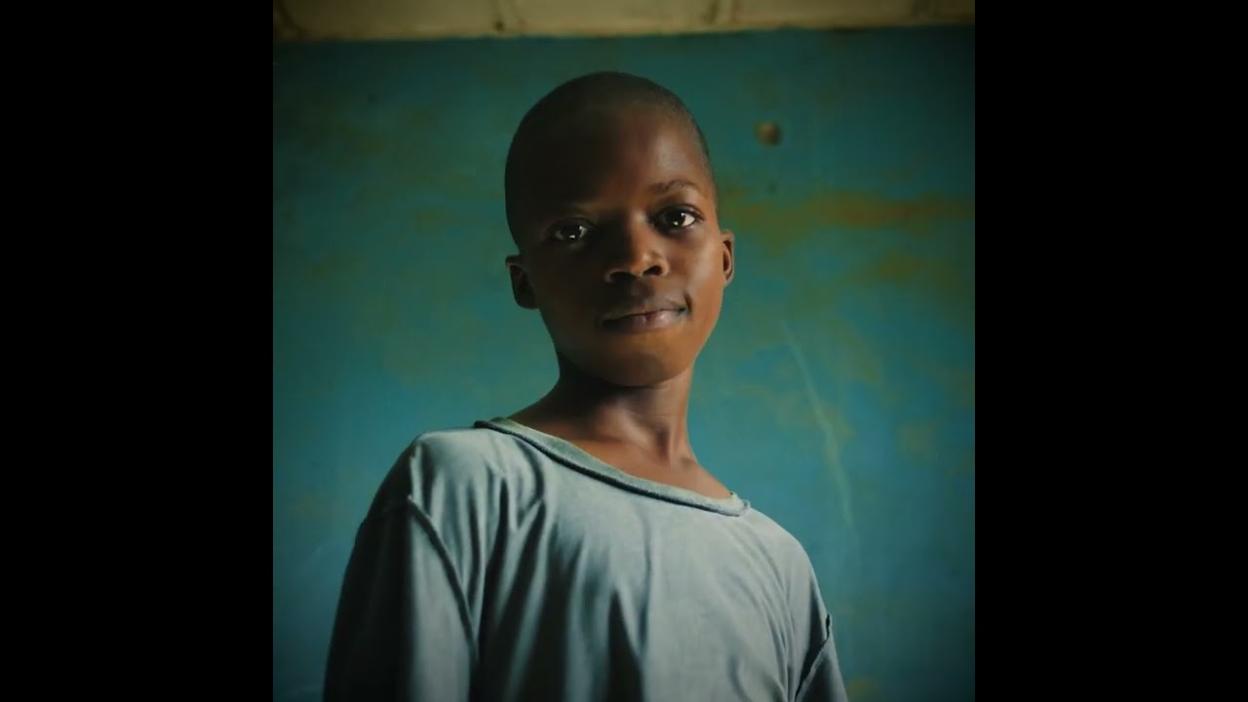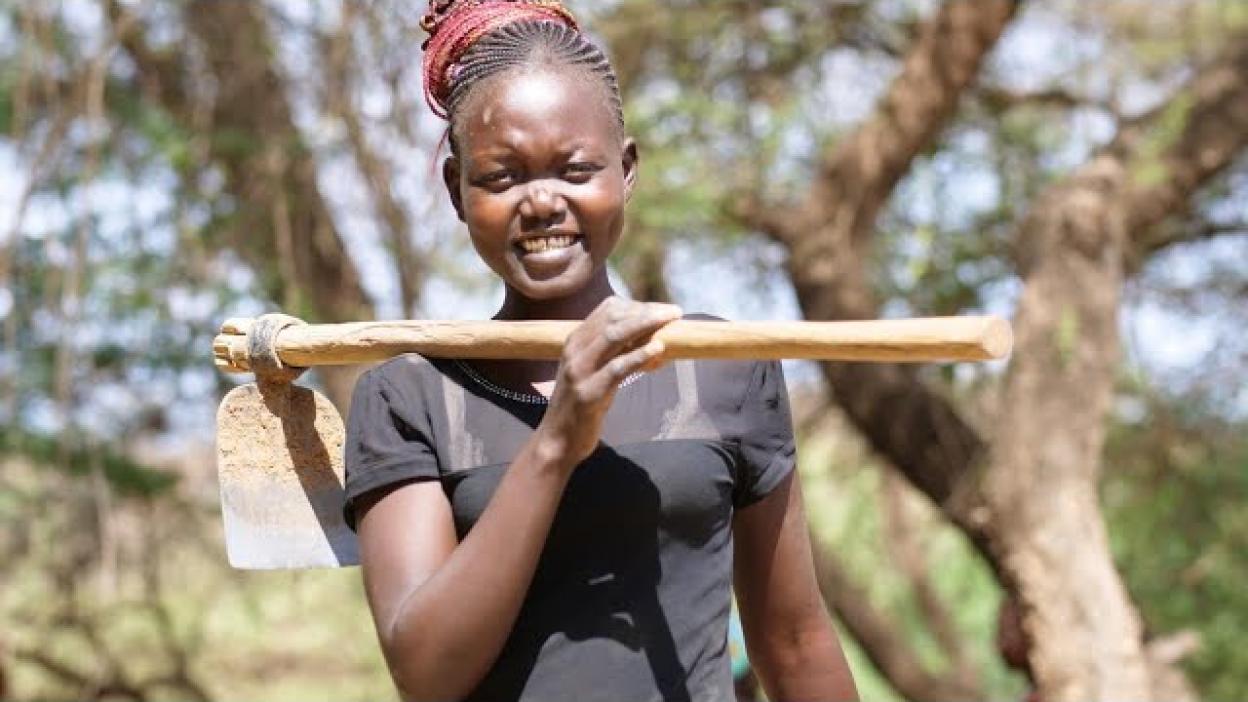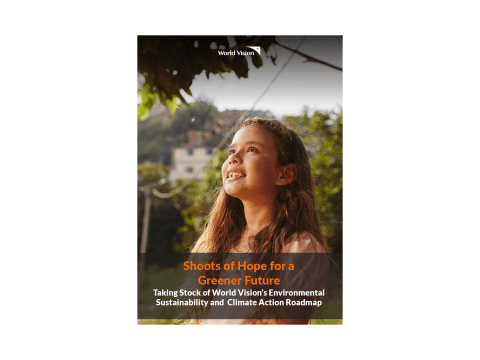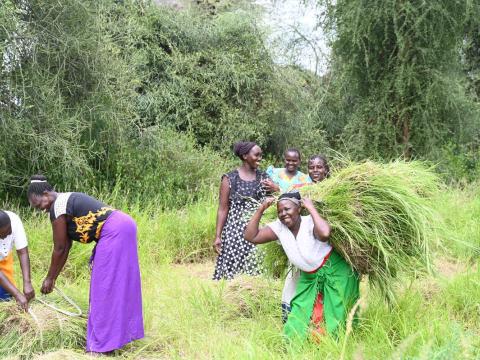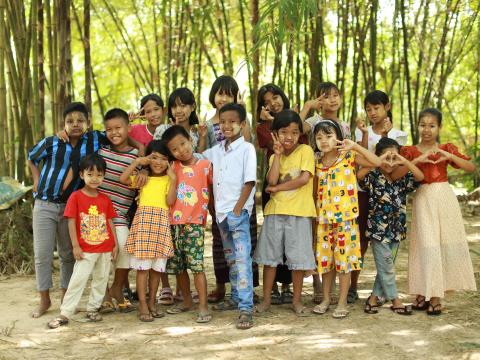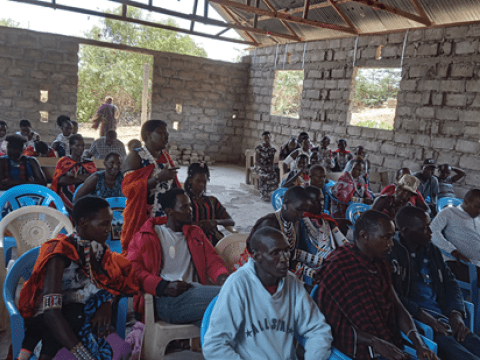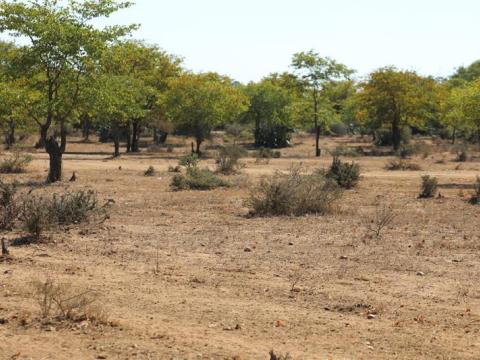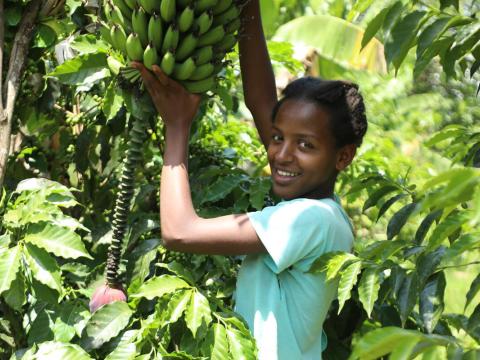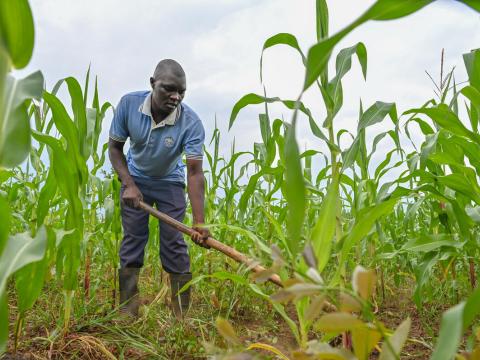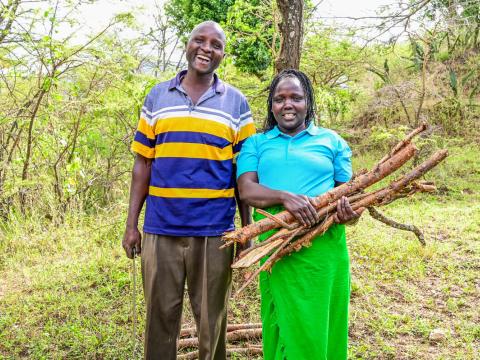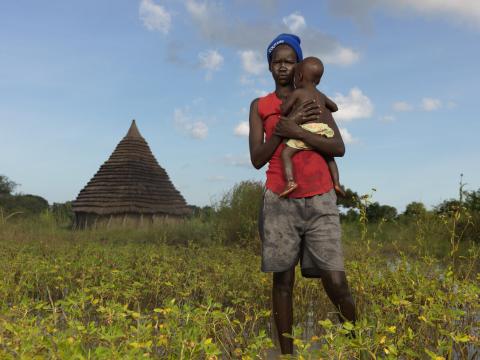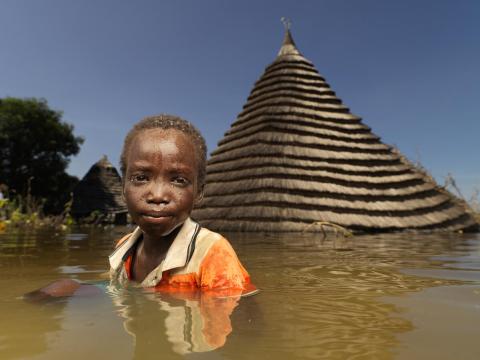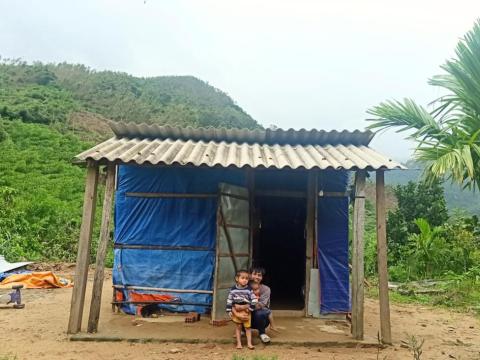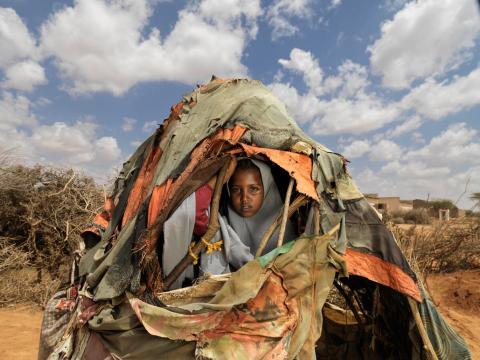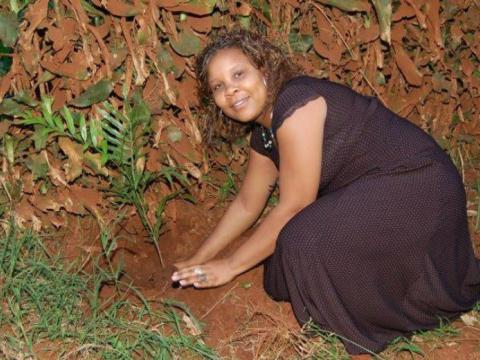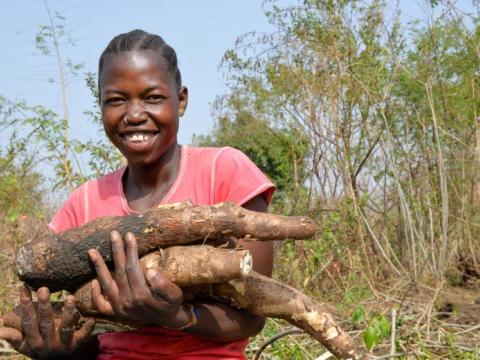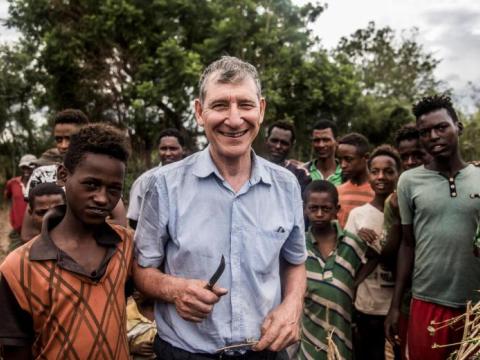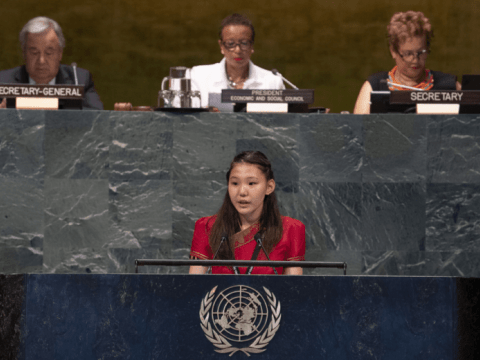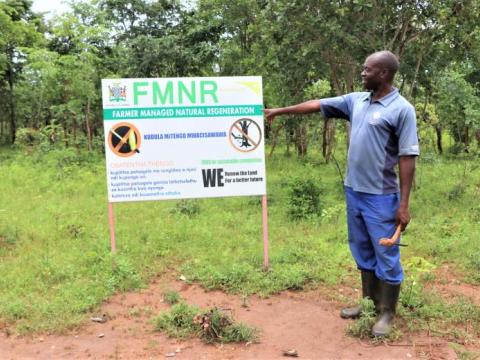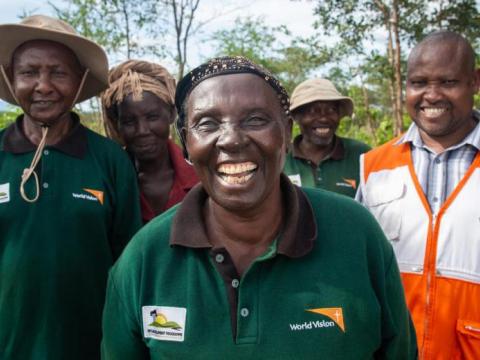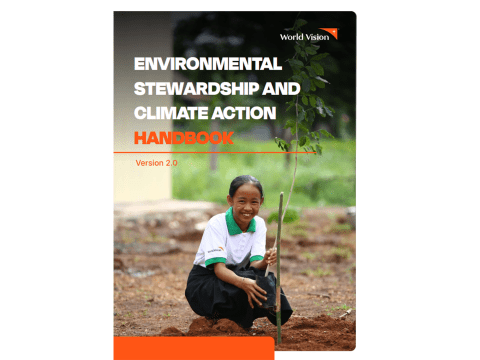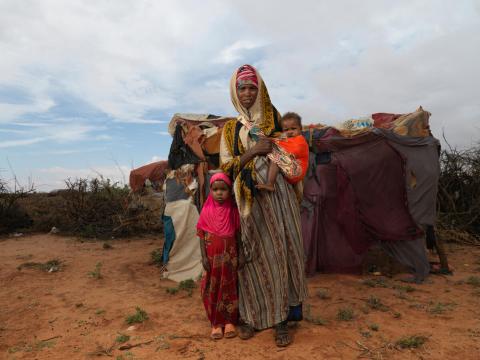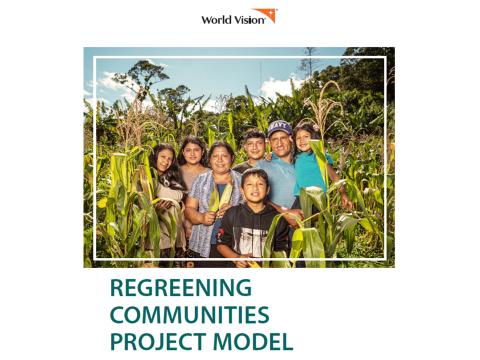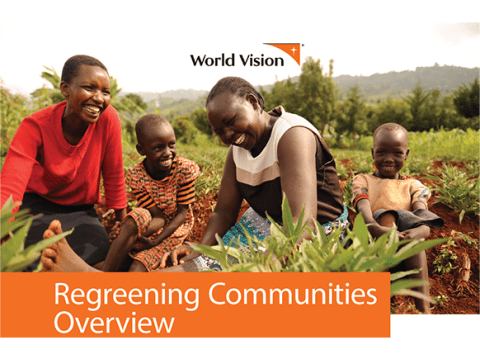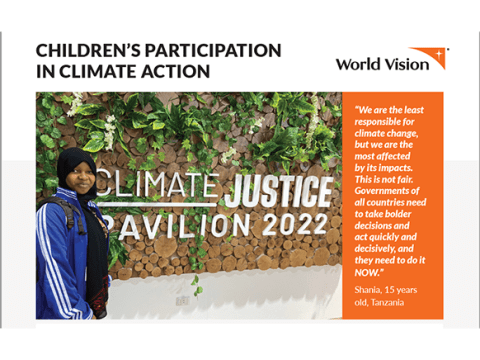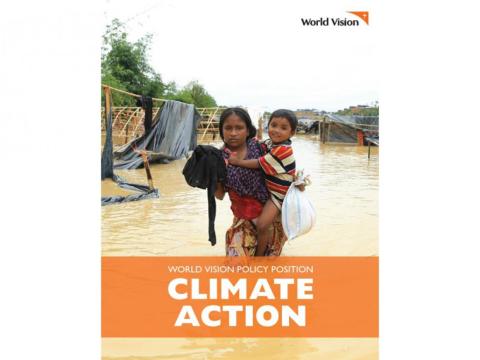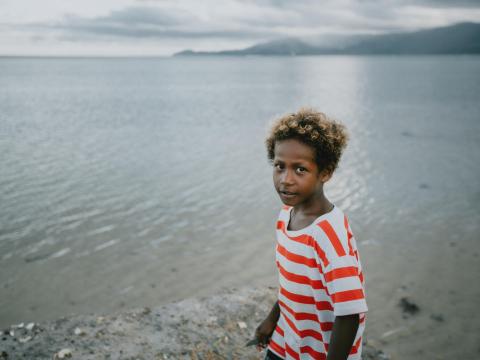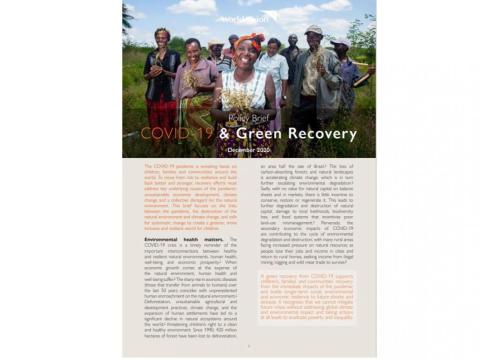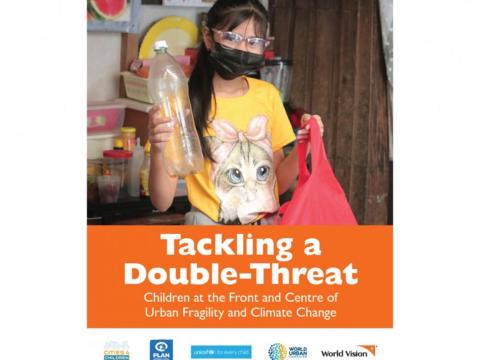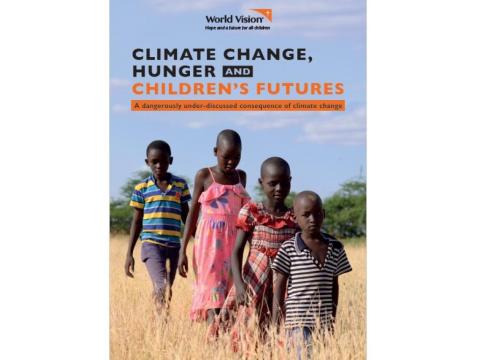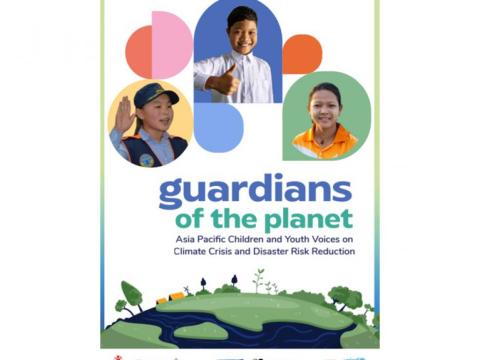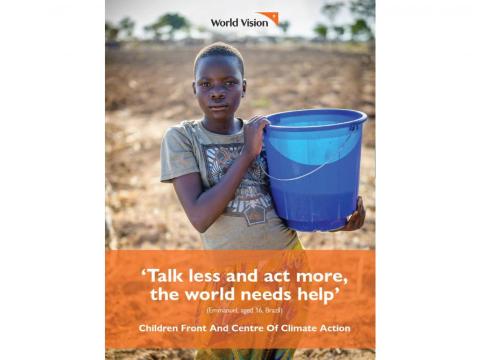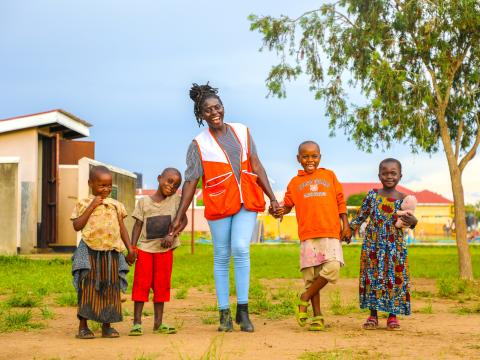
Environmental Sustainability and Climate Action
Our Impact
The global crisis we can’t ignore
Climate change is now one of the greatest drivers of poverty and hunger with 45 million people worldwide at extreme risk of famine. This includes almost 21 million children. Communities all over the world are telling us that unreliable seasons, droughts and floods are on the rise. The climate crisis is affecting everyone, but girls and boys in the most vulnerable communities will bear the brunt of the impacts, despite being the least responsible for it.
About 1 billion children – almost one in 2 children - across the globe are now living in countries at extremely high risk of impacts of climate change such as extreme heatwaves, droughts, cyclones and flooding. It is estimated that 3.2 billion people are affected by land degradation, while over 160 million children are living in areas of high-level drought. Without action on climate change, droughts will continue to intensify, land degradation and desertification will continue to accelerate, and the hunger crisis will be further exacerbated.
At World Vision, we believe that every child has the right to both a healthy and safe environment today and a sustainable future. Children are asking us to act now.
Our environmental stewardship and climate action work aims to address both the impacts and the causes of climate change, and deliver positive development outcomes for children. We work with communities through models such as Regreening Communities to restore the environment, embed disaster risk reduction strategies and promote sustainable agri-food systems. We support children and youth to join their communities in advocating for climate action through Citizen Voice and Action, as well as on the international stage at events such as COP.
We partner with communities to build their resilience and prepare them for crises. When such events occur, we are ready to help.
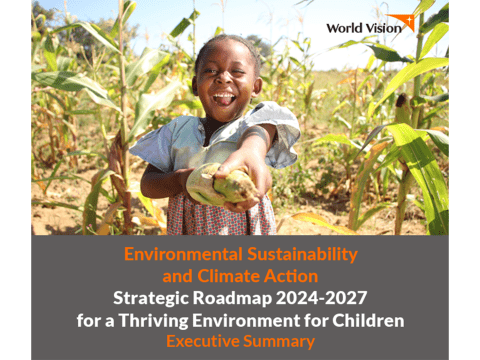
Environmental Sustainability and Climate Action Strategic Roadmap 2024-2027 for a Thriving Environment for Children (Full Version & Executive Summary)
World Vision has developed the first organisation-wide Environmental Sustainability and Climate Action (ESCA) Strategic Roadmap, with an initial three-year commitment (2024– 2027) that aligns with our long-term goals to be achieved by 2030. Through the ESCA Strategic Roadmap, our aim is to reach 20 million people (10 million children) so that children and their caregivers can live in a thriving environment with improved resilience against environmental and climate shocks.
Our Approaches
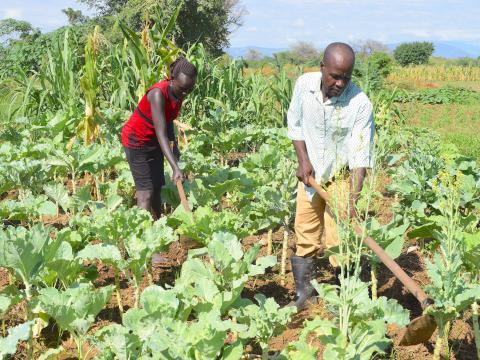
Climate Smart Agriculture
Sustainable agriculture, particularly Climate-Smart Agriculture (CSA) can be harnessed to minimise and even soak up emissions and mitigate climate change. CSA can also build resilience by helping smallholder farmers and vulnerable communities adapt to the impact of climate change and be better prepared for future shocks.
Based on our experience, CSA activities need to be successful for the benefit of the communities and children.
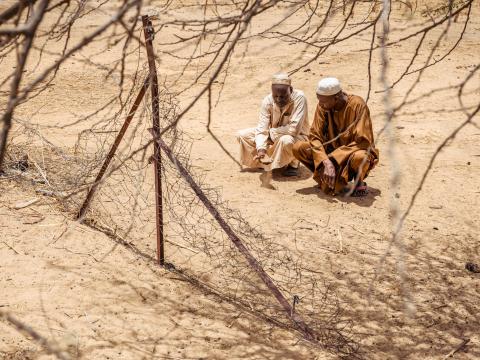
Regreening Communities
World Vision is a global leader in integrating community development with ecosystem restoration for the most vulnerable communities. Our Regreening Communities Project Model address climate change and the exploitation of natural resources by guiding communities through a participatory environmental restoration process. A tailored set of solutions is selected by each community including scaling-up indigenous restoration practices, strengthening government partnerships for restoration, and introducing proven practices like Farmer Managed Natural Regeneration (FMNR).
FMNR is a community-led solution based on nature. It reverses environmental degradation and tackles poverty, hunger, and climate change. This is done through the regeneration of trees and shrubs.
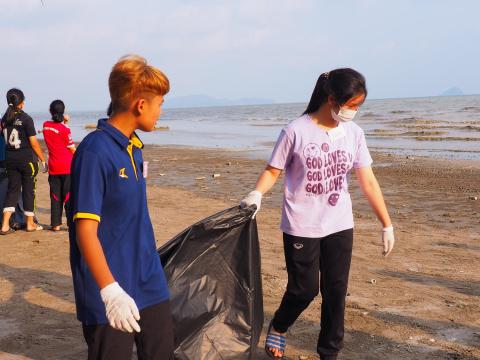
Circular Economy and creation of green jobs
World Vision is a strong advocate of sustainable development through the circular economy. We promote creation of green jobs and waste management particularly in urban fragile context areas.
Ensuring effective and sustainable waste management systems is key to maintaining adequate and hygienic living standards and for minimising environmental and health impacts. With the right approach, waste management can also be a source of environmental protection, revenue and employment. For example, in densely populated areas, as solid waste management services struggle to meet demand economic opportunities open for households in recycling and other forms of waste management.
Learn More
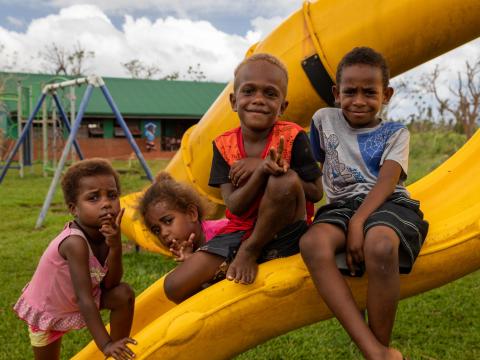
Children’s voices in climate action
Children are agents of change in climate action. World Vision’s Eco-IMPACT+ supports and empowers adolescents to care for the environment and combat climate change as active citizens. World Vision has found that climate change is posing serious child protection risks. There is no silver bullet solution to the complex issues, but we believe that creating spaces for children’s agency in climate action has a transformative impact on their lives and has the power to change society for the better. We empower girls and boys to be strong voices to improve community welfare in diverse issues such as environmental concerns, climate change and child protection.
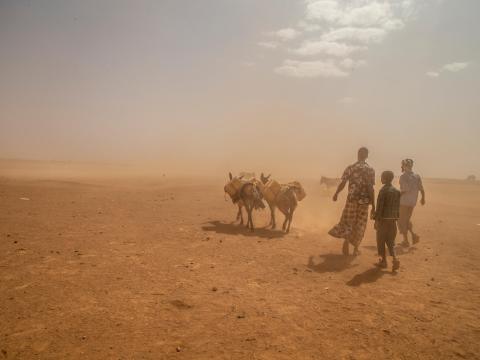
Reducing climate risks and responding to disasters
The climate crisis is increasing severe droughts and floods, risking the lives and livelihoods of millions around the world. In response, World Vision partners with vulnerable children, families, and communities to reduce their exposure to climate risks through a community-led approach to Disaster Risk Management. And when disasters hit, World Vision rapidly responds to provide urgent lifesaving assistance and support the recovery of disaster-affected girls, boys, women and men. In 2020, World Vision provided humanitarian assistance to 27.1 million people through 66 emergency responses in 58 countries.
Through our community-based approach, we promote we promote nature-based solutions such as FMNR for increasing climate resilience and reducing climate-induced disaster risks.
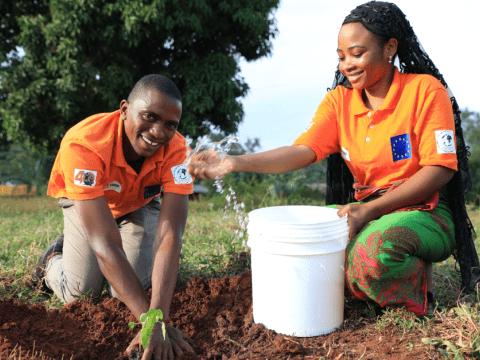
Citizen Voice and Action for climate issues
Citizen Voice and Action (CVA) for climate action is one of World Vision’s models and presents a unique approach to social accountability. It is designed to improve the relationship between communities and governments to improve services such as health care, education, and social and child protection. The approach is increasingly popular in our climate action programming where it is actively deployed to support youth participation in environmental restoration and climate adaptation models while facilitating their engagement with governments on climate action. Through programmes like the SAUTI Youth Project. World Vision is empowering girls and boys as agents of change, and ensuring their active participation and opinions are reflected in climate action decision-making at the local, national and global levels.
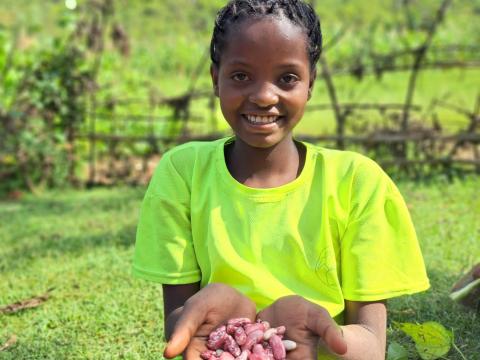
Carbon project
Projects such as the Humbo forestry project, engage in activities that remove carbon from the atmosphere while regenerating degraded landscapes. Sale of carbon credits generates income for local communities, while restored landscapes support livelihoods and reduce risks such as flooding.
Using carbon markets to fund community-based projects presents a great opportunity to contribute to long-term sustainable child well-being outcomes for the most vulnerable communities. The Humbo project, a community-managed reforestation initiative in southwest Ethiopia, has regenerated 2,728 hectares of previously degraded land. FMNR activities have led to the sequestration of 254,989 tCO2e to date and the sale of carbon credits has generated over US$700,000 income for local communities. The project is expected to remove >870,000 tCO2e from the atmosphere by its end date in 2035. The restored landscape has helped to strengthen livelihoods in the local community. See our carbon project benefit sharing approach.

